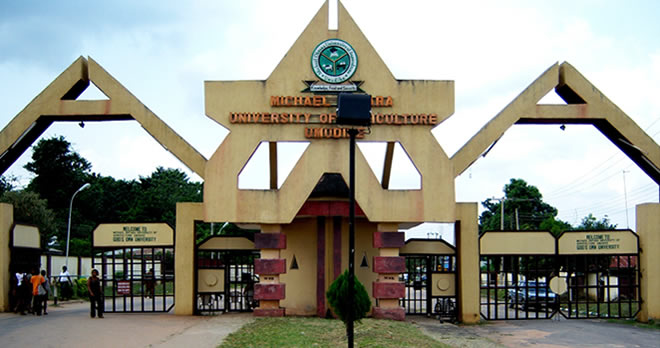By Etse Kassim, Abuja
Only 72 out of the total of 160 universities in the country (42 percent) offer programmes in Agricultural Science, Abubakar Rasheed, Executive Secretary of the National Universities Commission (NUC), has said.
Rasheed stated this in Abuja during a workshop for Vice Chancellors of specialised universities of agriculture and deans of faculties of agriculture which was organised by Sasakawa Africa Fund for Extension Education (SAFE) .
Represented by Rahmon Yusuf, the Commission’s Director of Research, Innovation and Technology, the NUC boss said the importance of agricultural extension programmes in boosting crops and livestock production cannot be over-emphasised.
While commending the SAFE’s initiative, aimed at strengthening Africa dwindling agricultural extension institutions for effective extension delivery based on farmers needs and demands, Rasheed said six Nigerian universities have already keyed into the programme, adding that the initiative would go a long way in teaching new techniques to farmers.
His words: “SAFE has developed curriculum on education extension and has introduced the programme to some tertiary institutions in Africa after due process. So far only six universities in Nigeria; Ahmadu Bello University, Zairia, Bayero University, Kano, University of Ilorin, UthmanDan Fodio University, Sokoto, Federal University, Dutse, and Adamawa State University are running the SAFE- funded agricultural extension programmes.
“It is worthy of measure that Nigeria presently has three specialised universities of agriculture and 69 universities offering agriculture but technically none of the specialised universities have keyed into the initiative,” Rasheed said.
Speaking further, the Executive Secretary said the Fund which was established in 1991 and now in nine African countries, has gone a long way in increasing students enrolment in agricultural programmes as well as address some of the challenges facing farmers in the continent through field researches.
He expressed the commitment of NUC to support the SAFE’s initiative to ensure the objectives are fully realised, adding that the Commission was eager to introduce and implement globally competitive curriculum benchmark and academic standard in all its approved programmes.
On her part, the Board chairman of SAFE, Prof. Ruth Oniang’o, commended Nigeria for the establishment of massive universities across the country, adding that the SAFE programme would go a long way in impacting on agricultural extension workers as well as rural farmers.
Oniang’o, who is a former Kenya’s parliamentarian, said the decision of NUC to embrace the SAFE programme is a welcome development, just as she expressed the Fund’s readiness to extend the initiative to many universities in the country.

















